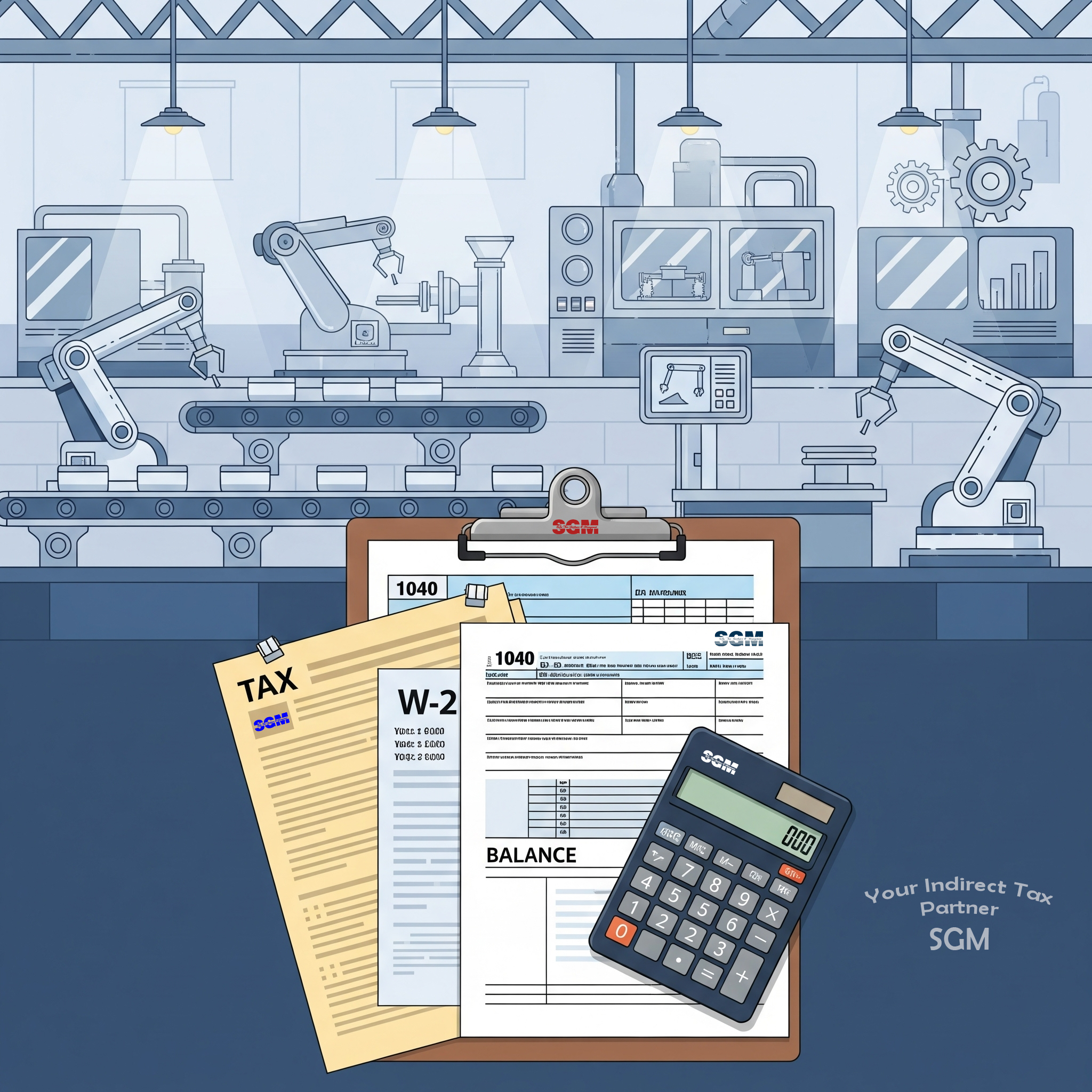Sales and Use Tax in the U.S. Manufacturing Sector: What Every Business Should Know
Understanding how sales and use tax applies to manufacturing operations can save businesses considerable costs—and help avoid audits and penalties. Here's a breakdown of the key considerations for manufacturers across the U.S.
1. Raw Materials & Component Parts Exemptions
Many states exempt raw materials and components from sales tax when those items become part of a finished product. This practice helps prevent “tax pyramiding,” where the same item is taxed multiple times during production. For instance, Iowa exempts items directly used or consumed in manufacturing from tax.
2. Machinery & Equipment Exemptions
A substantial number of states exempt machinery and equipment used directly in manufacturing processes. This includes tools, machines, and even production-related computers.
- California offers a partial exemption (~3.9375%) on such equipment, excluding local taxes.
- Pennsylvania determines exemption eligibility based on "predominant use"—if machinery is used more than 50% for manufacturing, it qualifies.
3. Utilities & Fuel
Many states offer exemptions for utilities used in production:
- New York: Exempts gas, electricity, refrigeration, and steam used directly in production.
- Multiple states—like California, Florida, Georgia, Illinois, Michigan, Missouri, and more—provide utility exemptions when usage is tailored for manufacturing purposes.
4. Common Exempt Categories
Other frequently exempt categories include:
- Packaging materials used to ship finished goods (e.g., pallets, crates, shrink-wrap)
- Repair and replacement parts for manufacturing machinery
- R&D-related equipment and supplies, especially for entities engaged in innovation and testing
- Pollution control and environmental compliance equipment, permitted exemptions in certain states
5. “Hot Spots” for Misclassification
Cherry Bekaert identifies frequent areas where manufacturers might inadvertently pay tax:
- Maintenance items
- Production supplies
- Storage equipment or racks
- Safety apparel (especially if it's seen as employee protection rather than product protection)
- Janitorial supplies (unless used directly on manufacturing equipment)
6. State-by-State Variations & Unique Scenarios
Manufacturing exemptions vary significantly across states—here are a few notable examples:
- Florida: Exemptions for machinery used in R&D, semiconductor industries, and utilities if primarily used for production
- Texas, Maine, Kentucky: Offer niche exemptions—e.g., certain bakeries or biological production may qualify
7. The Importance of Documentation & Compliance
To claim exemptions, proper documentation is essential:
- Use exemption certificates, affidavits, or direct-pay permits
- Maintain detailed purchase records and process documentation
- Know your state’s specific definitions—especially around “direct use” and eligibility criteria
Key Takeaways & Recommendations
|
Action Item |
Why It Matters |
|---|---|
|
Understand your state’s rules |
Exemptions differ widely across jurisdictions |
|
Analyze use cases carefully |
The specifics—e.g., maintenance vs. production—determine taxability |
|
Document meticulously |
Supports eligibility and audit defense |
|
Watch for audit “hot spots” |
Areas like safety gear and janitorial supplies are often scrutinized |
|
Seek expert support |
A state-local tax advisor can uncover further savings or address ambiguities |
Leveraging manufacturing-related sales and use tax exemptions can yield significant savings—but only when you understand how they’re applied in your specific jurisdiction.
Stay connect with SGM to ensure compliance with these new regulations.
Suggested Keywords:
Sales and use tax manufacturing, Manufacturing tax exemptions, Sales tax for manufacturers, Use tax for manufacturers, Raw materials sales tax exemption, Manufacturing machinery tax exemption, Utility tax exemption for manufacturing, Sales tax audit for manufacturers, Manufacturing compliance, State sales tax exemptions, California manufacturing sales tax, Pennsylvania sales tax manufacturing, Florida manufacturing tax exemptions, New York utility tax exemption, Manufacturing R&D tax exemption.


